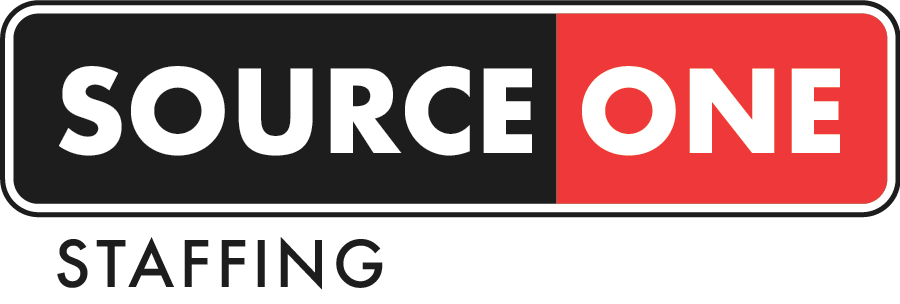Illinois: AI Gets a Human Chaperone
Starting Jan. 1, 2026, Illinois is putting AI in the HR hot seat. House Bill 3773 (HB 3773), signed by Governor J.B. Pritzker, prohibits employers from using artificial intelligence in ways that discriminate against protected classes, which includes the use of ZIP codes as a proxy for race, gender, or other protected characteristics.
“The law demands transparency,” says Jacob Wiczer, partner at Source One Staffing. “If employers use AI for hiring, firing, promotions, or any other employment decision, they must notify employees and applicants. “ Violations can trigger civil rights complaints, investigations, and penalties under the Illinois Human Rights Act.
What Illinois Employers Need to Do
- Review and update your policies and practices — AI can’t be left unsupervised.
- Train Human Resource staff on the new requirements.
- Develop clear procedures to notify employees and applicants when AI is used.
- Regularly monitor and audit your AI tools to ensure they aren’t unintentionally discriminating.
How can Staffing Agencies Help?
Staffing agencies offer significant value for employers by helping them monitor AI tools to ensure compliance. “Staffing partners, like Source One, can provide the people, tools and resources to ensure their clients remain both compliant and productive,” says Wiczer.
Adds Wiczer, “A staffing company can also offer alternative, human-led screening and selection processes to find qualified candidates, while reducing reliance on AI, especially for roles with high-risk AI bias or where legal restrictions make AI use impractical.”
In short: know your tech, or it could cost you.
Missouri: Minimum Wage and Paid Sick Leave—Now You See Them, Now You Don’t
Missouri voters passed Proposition A in Nov. 2024, which raised the minimum wage and introduced a paid sick leave mandate for most private-sector employees. As of May 1, 2025, workers began accruing paid sick leave (one hour for every 30 worked, up to 56 hours a year), and the minimum wage is set to rise to $15/hour on Jan. 1, 2026.
But just as employers were getting used to the new rules, the Missouri legislature threw a curveball. The Missouri Senate passed House Bill 567 on May 14, 2025, repealing most of Proposition A. House Bill 567, which is expected to be signed in mid-July by Governor Kehoe, repeals Proposition A’s paid sick leave mandate and any future automatic minimum wage increases tied to inflation. The paid sick leave mandate vanishes on Aug. 28, 2025, but the $15/hour minimum wage increase will still take effect on Jan. 1, 2026 (with no further automatic increases after that).
What Missouri Employers Need to Do
- Until Aug. 28, 2025:
- Follow Proposition A’s sick leave and minimum wage rules.
- Track accruals, update handbooks and avoid retaliation.
- After Aug. 28, 2025:
- The state paid sick leave mandate is gone—review your policies.
- Prepare for the $15/hour minimum wage on Jan. 1, 2026.
- Watch for local ordinances or federal changes.
Texas: Still Waiting for the Next Move
While Illinois and Missouri are keeping employers on their toes, Texas is taking a breather — for now. There are no new statewide employment law mandates for private employers in 2025 or 2026, yet. Texas employers should be aware of pending legislation regarding the E-Verify program under Texas Senate Bill 324 (SB 324). The bill was approved by the Texas Senate in April 2025 and is currently pending in the House.
If the bill passes, nearly all Texas employers will have to use the federal E-Verify system to confirm that new hires are legally authorized to work in the United States. However, there is no indication that the bill would require retroactive verification of all existing employees.
The bill’s effective date will be set upon passage by both chambers and the governor’s signature. If passed, implementation would be expected to begin in early 2026.
For now, only state agencies, public universities, and certain businesses are required to use E-Verify. Stay tuned: things could change quickly if SB 324 gets the green light.
Staffing Agencies: Your Compliance Lifeline
Staffing companies are more valuable than ever in regulatory rollercoaster. They can:
- Help employers find qualified candidates (with or without AI).
- Monitor and audit AI tools for compliance.
- Provide required notices and keep your records audit-ready.
- Train your team and help update policies as laws change.
- Offer human-led screening when AI is too risky or restricted.
The Bottom Line for Employers in Illinois, Missouri, and Texas
No matter where you are, staying compliant with changing state and federal regulations means staying informed — partnering with a staffing agency can help on all fronts.
Source One specializes in find for outsourced recruiting of temporary staffing and temp-to-hire services in the manufacturing and light industrial market sectors, with offices near Chicago, St. Louis and Dallas/Fort Worth.






